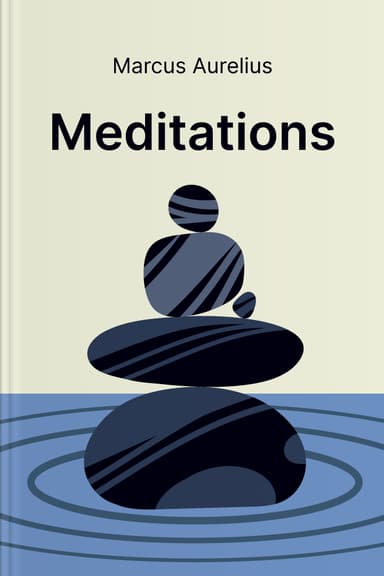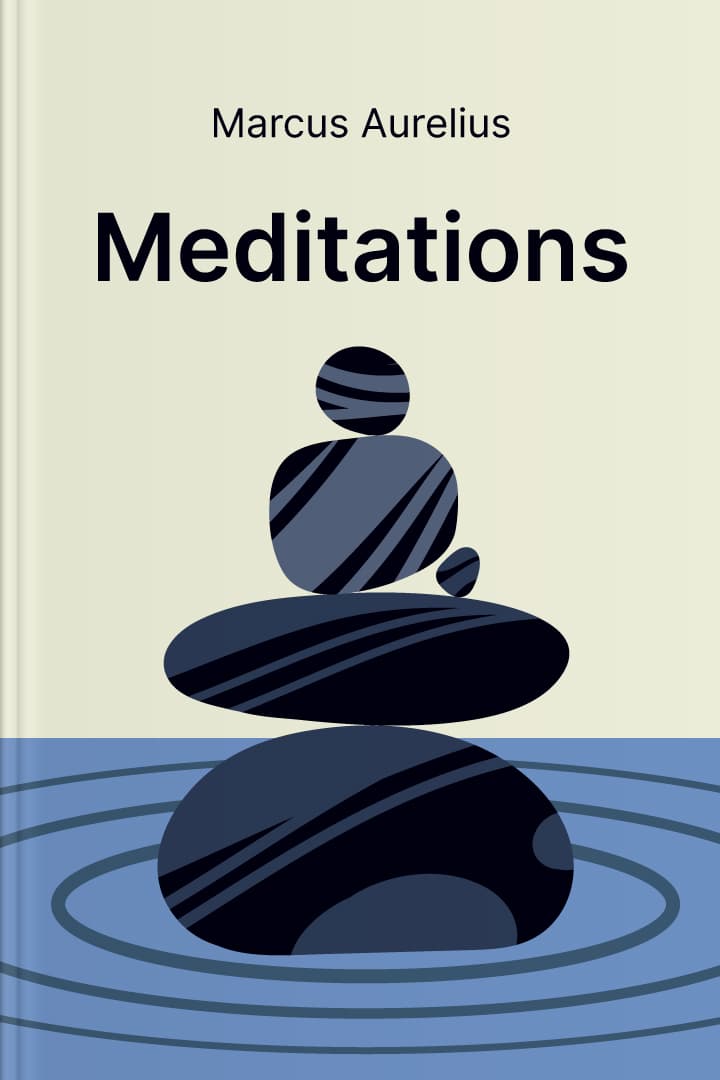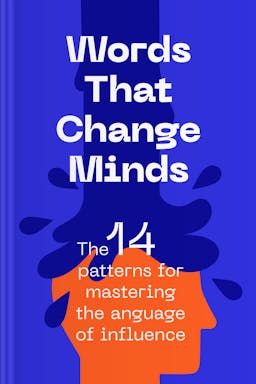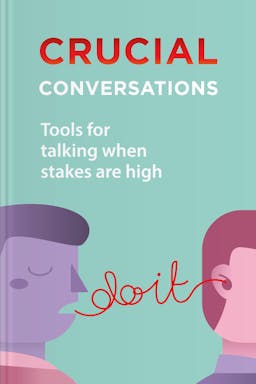

Summary of Meditations
You’ll learn
- Stoic life lessons
- About dealing with obstacles and using them to your advantage
- What to strive for in life
- How to accept death and let it inspire you to enjoy life
Table of content
- Summary of Meditations
- About the author
- What is Meditations about?
- Who should read Meditations
- Topics in Meditations
The collection of Marcus Aurelius' life-lessons has remained relevant through ages
The notes were meant to help Marcus Aurelius, a trained Stoic, define a life philosophy and an ideal character worthy of aspiration for himself. They were also intended to help him reflect on how to make good on the responsibilities and obligations of his position as the military leader of an empire. However, the insights in Meditations have proven to be priceless and ageless, as they have resonated with men of all walks of life for thousands of years.
As a soldier, Marcus was both capable and successful; he embarked on several campaigns in the interest of his empire and people and was triumphant in almost all of them. In a similar vein, he was prudent and conscientious as an administrator.
However, the good emperor was not spared domestic and personal troubles. His wife, Faustina, died at an early age, and his children died one by one. By the end of Marcus' life, only one of his sons still lived — the weak and worthless Commodus, who would end up succeeding Marcus as emperor and ruining his father's life legacy during his short reign.
Yet through all his numerous afflictions, Marcus's humility and objectivity were tremendous. And during those years of trouble, Marcus would write twelve books of his private journals “Meditations,” which have gone on to become one of the most practical and influential philosophy books in the history of the world.
In this summary, we will take a look at the major life lessons that recur throughout the book and how they can help lead a better life.
No one has the power to make you feel any negative emotion without your permission

Don't waste even a second of your time on earth complaining
Stay focused on the present and live with the understanding that you're here for a purpose
The obstacle is the way: learn to see obstacles as opportunities
Meditate on your mortality and let your awareness of it inspire you to live your best life
Conclusion
What is Meditations about?
Who should read Meditations
Topics in Meditations


Enjoy summarized nonfiction bestsellers
Grasp the book’s key ideas in less than 15 minutes
Get startedGet new knowledge easily
Let’s check how many titles you can finish in a month with Headway! Tell us how much time you’d like to spend on reading:

















Join 30+ million learners around the world
Everything you need to be motivate, to learn & to self improves is all here. I actually do appreciate the reminders because otherwise this wouldn’t work for me. Thank you
Headway is the answer! No longer accumulating books I never read. With Headway, I initially chose the areas important to me such as productivity, time management, etc., and each day I'm provided several book summaries from which I devote 20 minutes or more each day reading. All of this on my phone! My life has improved with Headway. Truly my most useful app.
An excellent concept, executed well. Headway can help you retain what you've read while introducing you to the essential core of new information. It's an easier way to stay inspired, and to be reminded of the mental tools you've learned
In today’s world, we rarely have time. Between our jobs, our families are social obligations, when do we have time to grow and develop ourselves? Headway is an excellent app that gives you that time it gives you those little snippets of information that you need to direct your focus in on your life. Headway gives you a chance to find out the meat of a book that you might want to purchase and read or listen to in-depth without wasting a lot of time trying to figure out is this book for me? I highly recommend the app.
The selections are on point and the summaries are excellent! I listen while I walk my pup 🐶 and have in turn, ordered a few selections! REALLY loving the app, it’s layout, daily selections and features!
I've gotten multiple books out of the library with the intent to read them, but always have a hard time finding the time. This app has helped me finally be able to get to them. Summarized, yes, and thank goodness too! Just short enough I can finish one on my way picking kids up from school/practice, or while I'm cooking dinner. I can't wait to listen to them over the summer when we visit the beach!
It amazed me! There is the possibility to highlight the most important points of each book and instantly translate unfamiliar vocabulary. With the ability to review the searched words. It's a great way to learn more about English as well. The price is great.
I’m enjoying what I’m learning on headway.each summary comes with quotes at the end which you can save to help you remember key points. You can listen or read, I’ve found that reading puts me to sleep before I can finish but the listening feature keeps me engaged and I can finish in a brief amount of time if not one session.
The app it’s so easy to use. I use it while driving or cooking and is great. I love the fact that the chapters are short, so you can finish them quickly. Very knowledgeable.
The best app for self development.It helps to keep pace with your reading and also suggests the kind of reading material you might like.It is fun as you can switch from reading to listening and vice-versa as per your convenience .Just get started and partake of the treasure of knowledge at your fingertips .I feel lucky to have spotted the app.It has helped me become self-disciplined and much better informed.The audio track is excellent.
Exactly what I need! I always have booklist to read, but can't committed enough to finish/start bc of too much pages. Headway is really helpful and concise with their summary. What I love the most is that the essence of the book is well crafted, so I don't only read the key points, but also there's the story and how personality of the author still well shown through the summary. Well done!
This is outstanding best app ever and honestly whoever came up with is my app is an absolute genius kudos my gratitude definitely goes out and I’m only on my first week free trial and I’m certainly going to purchase this app annually. Now that I have it, I can’t even imagine living without it.




























